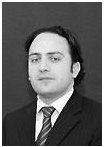Director and Principal Consultant
i-intelligence

Abstract
Fifty years ago, the physicist C. P Snow coined the "two cultures" to describe the failure of communication between the sciences and the humanities. Snow argued that mutual ignorance and incomprehension were a hindrance to tackling the challenges of his day. For all its flaws, Snow's thesis remains worryingly relevant, no less to OSINT professionals. Our discipline is increasingly divided between analysts and technologists: the former struggle to grasp technology's potential, while the latter often fail to appreciate the human challenges associated with OSINT collection and analysis. Mutual incomprehension extends to all aspects of our work: analysts are tasked with anticipating the future; technologists with building it. Analysts grapple the with messiness and uncertainty of global affairs and the limits of human cognition; technologists are expected to answer the most complex questions using binary truths. Bridging these cultures is essential to making OSINT the dominant intelligence paradigm of the 21st century. This talk will explore what effect these cultures are having on the business of open source intelligence and how the resulting problems can be alleviated. Further, it will explore whether OSINT professionals can work towards the much-discussed "third culture", one founded on a mutual understanding of how information - as both a physical entity and theoretical construct - can help tackle the challenges of our day.
Short bio
Chris Pallaris is the Director and Principal Consultant of i-intelligence. He leads and coordinates the company’s training and consulting activities in Switzerland and beyond. Previous to this, Chris served as Executive Editor and Head of Strategy and Open Source Intelligence at the International Relations and Security Network (ISN), ETH Zurich. He established the ISN’s OSINT unit and coordinated its intelligence-related projects with Swiss and European stakeholders. Earlier, he served as the ISN’s Executive Editor where he led the development of the organization’s news and information services and its global network of partners and correspondents. His professional experience also includes competitive intelligence, journalism, information and knowledge management, network building, strategy consulting, and organizational development. A graduate of the London School of Economics and Political Science, Chris serves on the board of the European Open Source Intelligence (EUROSINT) Forum, where he also chairs a working group on best practices in OSINT.